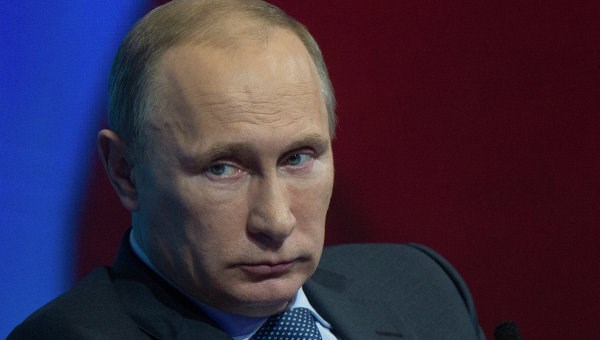Political convictions in Putin's Russia surpass USSR levels under Khrushchev and Brezhnev
In Russia, the number of individuals convicted on political grounds during President Vladimir Putin’s most recent term has surpassed that of the USSR under Nikita Khrushchev and Leonid Brezhnev, reports the Russian publication Proekt (Project).
Proekt highlighted that the total number of those persecuted in Russia under criminal and administrative charges for the period from 2018 to 2023 is estimated to be around 116 thousand people. According to Proekt, from 2018 to February 2024, 5,613 people faced prosecution under criminal articles for extremism, justifying terrorism, so-called "fake news," and discrediting the military. This number climbs to 11,442 when including those who also refused to fight in Ukraine or who were accused of treason, espionage, etc., the outlet states.
Around 100 thousand individuals faced administrative prosecution, including offenses related to participation in unauthorized protests.
The journalists noted that during the times of Khrushchev and Brezhnev, who ruled the USSR from the latter half of the 1950s through the early 1980s, fewer people were convicted under articles for "anti-Soviet agitation" and "spreading information slandering the Soviet regime" than during Putin's last six-year term. For Khrushchev, a six-year period from 1956 to 1961 was selected, recording 4,883 cases of repression. Under Brezhnev, the years from 1968 to 1973 were chosen, with Proekt counting 1,057 repressed.
In their research, Proekt notes that in the Soviet era, more individuals were placed under so-called preventative surveillance, a figure comparable to the number fined for taking part in rallies. The dissenters, much as in the USSR, were expelled from universities, fired from their jobs, driven out of the country, or, for those unwilling to leave, forced to publicly apologize and swear loyalty to the state. However, the publication adds that it is impossible to calculate the exact number of people affected by such forms of repression.
Authors of the study, which also focused on Alexei Navalny who was killed in a penal colony, provided detailed statistics on the number of individuals held accountable under various criminal and administrative articles. The research indicated that repressive actions intensified after Russia's full-scale invasion of Ukraine.
Notably, there has been a significant increase in the number of people accused of terrorism. In 2021, there were 31 such cases, but in 2023, the number had jumped to 111, with every fifth accused being Ukrainian.
Furthermore, the incidence of desertion or military personnel abandoning their units has surged. The count of individuals sentenced under articles calling for extremism or justifying terrorism also saw a dramatic rise, with "justifying terrorism" remaining the primary tool of military censorship, according to Proekt. Individuals opposed to the war are more frequently prosecuted under this charge than under legislation concerning so-called "fake news" about the army.
